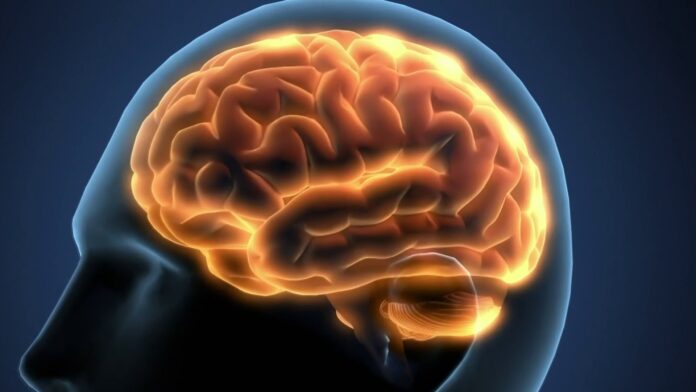IQ, or intelligence quotient, helps measure a person’s intelligence and cognitive abilities to solve any problem. As per a recent study, IQ tests were conducted on a group of people at age ten and the same ground of people at age 80. The results concluded that the IQ levels of all these individuals remained more or less the same even after such a considerable time difference. This led to many questions arising in the minds of individuals. One of the most common questions was, what is the age at which the IQ starts to become stable?
Scientists have found that IQ becomes stable around 20 years old. Also, you must know that numerous genetic factors determine IQ levels and that working harder won’t make any significant difference. Also, it was found that people’s cognitive abilities probably don’t change much based on how hard their jobs are, what degrees they have, what hobbies they have, or how much they read. People are smart in different ways. This article talks about the concept of the stability of IQ levels in detail.
Relationship Between The Growth Of Cortical Layers and IQ

A recent study was conducted on 300 kids, who were kept under the radar from childhood until they turned teenagers. At age 7, kids with IQs of 120 or higher had, on average, thinner cortical layers. The cortical thickness of the high-IQ children grew much faster than that of the other children, reaching a peak between the ages of 11 and 12 before slowly returning to the other children’s levels.
There doesn’t have to be a direct link between genes and how the cortex grows and changes. Children with a higher IQ may act differently in the world and get different responses from other people, which can dictate how their brains develop.
The Significance Of IQ Levels
“Intelligence Quotient,” or IQ, is the number you get on a test that measures how smart you are. A standard scale is used for these tests, and 100 is the midground. On most of these tests, a score between ninety or one hundred and ten, or the median plus or minus ten, shows average intelligence. You are brilliant if you get 130 or more, but you may be slow mentally if you get 70 or less. Similar to the tests that were used in the past, modern IQ tests use a child’s age to figure out their Intelligence Quotient score.
People take Intelligence Quotient tests to find out how well they can solve problems as well as understand ideas in general. This means being able to think, solve problems, see how things are linked, remember information, and find it when needed; all of it is determined by your Intelligence Quotient levels. In a number of ways, Intelligence Quotient tests measure this general intellectual ability. If you are looking forward to taking an IQ test to determine your intelligence levels, check out https://www.iq-online-test.com
A majority of people tend to do better on particular types of questions as compared to others, but experts have found that those who do well in one category also do well in others, and those who do poorly in one category also do poorly in others. As a result of these findings, experts say that one general part of intelligence defines other, more specific cognitive abilities. So, the best IQ tests have questions from more than one area of intellectual and cognitive abilities.
Can Your IQ Levels Be Increased?

Since Intelligence Quotient tests look at how well you understand ideas rather than how much you know, learning new things doesn’t immediately raise your Intelligence Quotient. We only know a little about how the brain works or what intelligence is. We also need to learn more about how learning as well as mental ability are linked. However, most experts agree that a person’s environment significantly impacts how smart they become.
Many of us have heard that as we get older, our minds become less sharp. But can this be measured? Does our Intelligence Quotient go down as we get older? If it does, how fast does it happen? Are there different rates of decline for different kinds of intelligence?
People’s Intelligence Quotients are always calculated based on their age, whether they are 10, 15, 25, 50, 72, or 88. So, 25-year-olds are compared to other 25-year-olds based on how many questions they answer correctly on a given task, just like 50-year-olds are compared to other 50-year-olds. The Intelligence Quotient score shows where a person stands in comparison to the average.
Is It Possible To Enhance Your IQ?

There are some signs that babies who get better care and food grow up to be more innovative. Also, preschoolers who get more intellectual stimulation tend to have higher Intelligence Quotients. Adults’ Intelligence Quotients don’t change much as they get older. There is enough evidence stating that staying in an intellectually stimulating environment improves some cognitive skills, just as staying in shape improves physical skills. But these changes don’t last and don’t have a significant effect on the intelligence quotient scores.
Thus, no matter how much you learn, your IQ stays pretty much the same. A person can get smarter. These tests are just one way to figure out how smart someone is in some areas. Many critics say that these tests often fail to measure things that we think are important about intelligence, like creativity, social abilities, knowledge, acquired skills, and so on.
These IQ tests are helpful because they help to measure general cognitive skills, which has been shown to be a pretty good indicator of a person’s intellectual capacity. IQ as well as success in school and the workplace are strongly linked in a good way, but IQ and a person’s success sometimes go together.
Conclusion
It is believed that IQ levels become stable by the age of 20. Studying how intelligence has changed over time is one of the most exciting and important things to study in psychology. It is believed that IQ remains constant throughout a person’s life. Often, the IQ ratings taken during childhood are used to predict adult education and employment outcomes.







